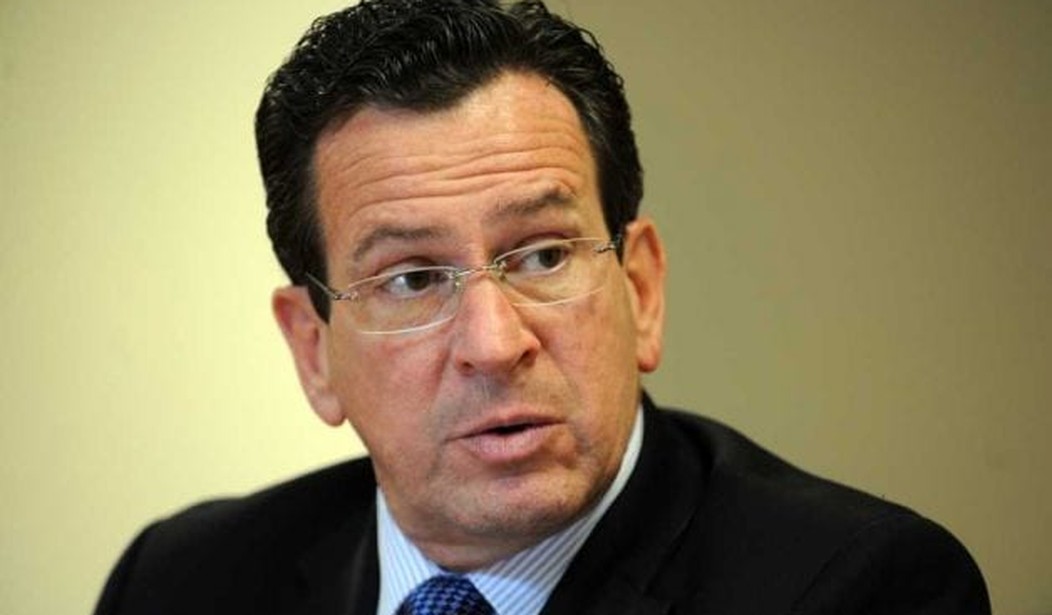Connecticut Gov. Dan Malloy (D) continues to be unable to shake his Republican challenger, as the latest Quinnipiac University poll has his race against Tom Foley tied at 43 percent apiece.
The contest between Malloy, the former mayor of Stamford, and Foley, the U.S. ambassador to Ireland from 2006 to 2009, is a rematch of the 2010 gubernatorial race. Malloy defeated Foley by fewer than 6,000 votes in the general election.
An Oct. 8 Quinnipiac poll found independent candidate Joe Visconti’s support at just 7 percent, down 2 percent from a poll on September 29. The drop comes despite what appeared to be a strong showing by the third-party candidate during a televised debate earlier this month.
“Joe Visconti’s numbers have edged slightly downward. Not a surprise given that many of his supporters told us they could change their mind,” Douglas Schwartz, Quinnipiac University Poll director, said. “Perhaps we are beginning to see some of those more conservative-minded Visconti voters shift to Foley as the election draws near.”
With Visconti removed from the polling, Foley assumed the top spot but by a thin 1 percent margin, 46 to 45 percent.
While Visconti’s low numbers and the dead heat might not be surprising, what is surprising is the gender gap between the candidates’ supporters purveyed in the poll.
Malloy bests Foley with women 52 to 35 percent, while Foley is the favorite among men, 51 to 34 percent. Women’s rights issues have not been a factor throughout this campaign and Foley has gone on the record as supporting reproductive rights and closing the wage gap, but his lack of support among women might be due to several non-traditional issues.
Alison Rivard, vice president for public issues at the League of Women Voters Connecticut, says that women in Connecticut might be focused on issues such as gun violence, which could be the reason they are more supportive of the Democrat.
While Foley has said he would not push for a repeal of Malloy’s 2013 gun bill, he has said that he would sign repeal legislation if it were to land on his desk as governor.
“I think women have a broad range of concerns covering the state of the economy, preservation of gun violence prevention laws in addition to issues like the pay gap,” Rivard said, stressing Foley’s positions would need to “reflect where the women in this state are.”
The LWV is a nonpartisan organization that does not endorse or support any candidate. Rivard also indicated that women might be concerned with some of the outside organizations that support Foley whose main goals are repealing the gun legislation.
One group that has endorsed Foley in this race, the Connecticut Citizens Defense League, said that Foley’s promise to sign repeal legislation is what earned him that endorsement over Visconti. Visconti had made Second Amendment rights one of the major themes of his campaign but CDDL President Scott Wilson Sr. said that the group chose Foley over Visconti because he had a better shot at unseating the governor.
“Realistically, Tom Foley is not going to see any repeal bills in at least four years as governor with the makeup of the state legislature,” Wilson said.
Another issue women are likely very invested in is education. Graduation rates in the state have increased every year during Malloy’s four years as governor, according to an April 2014 report from the Connecticut State Department of Education. The governor has not backtracked from his support for the controversial Common Core education policies implemented in the state. Malloy has also invested in a statewide pre-kindergarten program with the hopes of offering universal access by 2019.
Foley has offered his own “money follows the child” plan, which has been criticized by the Connecticut Education Association. The CEA says that the scheme would divert $39 million from local schools to pay for charter school students. Their analysis indicates that if charter school enrollments were to increase by just 10 percent, due to Foley’s policy allowing parents to choose any in-district school for their child, that amount would rise to $50.2 million. The report expresses concerns that Foley’s plan would see local tax dollars given to private education companies operating in the state.
The CEA has endorsed Malloy in the race.
Foley’s education policy also includes implementing an A-F grading system for schools, which his detractors say, if tied to funding, will hurt the underperforming schools that need funding the most. Foley would institute a reading test for third-graders, which he says will ensure that children are capable of moving to the next education level. His plan also outlines a Regents-style exam for graduating high school students.









Join the conversation as a VIP Member